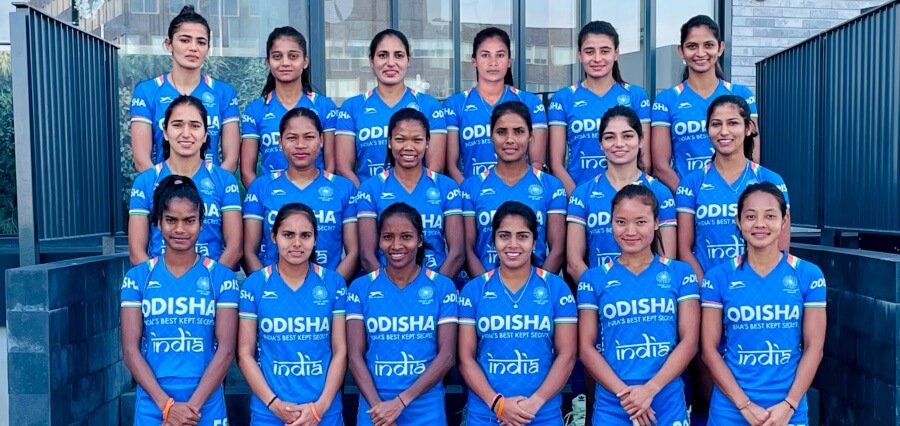Breaking Barriers
The landscape of Indian business is undergoing a transformative shift, thanks to a new wave of dynamic women leaders who are redefining the rules of success. These modern businesswomen are not only breaking traditional barriers but are also leading their industries with vision, resilience, and a commitment to social change. From the technology sector to finance, retail, and social entrepreneurship, Indian women are playing a crucial role in shaping the future of business and demonstrating how inclusive leadership can drive innovation and growth.
The Rise of Female Entrepreneurs in India
India’s startup ecosystem, once a male-dominated arena, has witnessed a remarkable rise in the number of women-led businesses. This surge is attributed to increased access to education, government initiatives encouraging female entrepreneurship, and changing societal attitudes towards women in business. One of the most striking aspects of this transformation is the diversity of industries in which women are excelling. From tech-driven enterprises like Richa Kar’s Zivame (an online lingerie platform) to Falguni Nayar’s Nykaa, a beauty e-commerce company that became a billion-dollar venture, Indian women are building businesses that are both financially successful and socially impactful.
Challenges and Resilience
While the growth of female entrepreneurs in India is promising, the journey has not been without challenges. Deep-rooted gender biases, societal expectations, and a lack of access to funding have historically impeded the progress of women in business. However, the new generation of female leaders has exhibited remarkable resilience in overcoming these barriers.
One notable challenge is access to capital. Research shows that women entrepreneurs often struggle more than their male counterparts to secure funding for their businesses. However, initiatives like the Women Entrepreneur Platform (WEP), created by the government’s NITI Aayog, aim to provide financial and mentoring support to women-led ventures. Furthermore, many women entrepreneurs have turned to innovative funding methods like crowdsourcing, partnerships, and leveraging technology platforms to raise capital.
Breaking Stereotypes: Leading Male-Dominated Industries
One of the most inspiring aspects of modern Indian businesswomen is their ability to break into traditionally male-dominated industries. Sectors like manufacturing, technology, and finance, once seen as off-limits for women, are now being led by some of the country’s most successful female entrepreneurs.
Kiran Mazumdar-Shaw, for instance, has been a trailblazer in the biotechnology industry. As the founder of Biocon, one of India’s largest biopharmaceutical companies, she has been instrumental in putting India on the global map for affordable healthcare innovations. Similarly, Vinita Bali has made a significant impact in the FMCG sector, leading companies like Britannia to new heights under her leadership.
These women not only demonstrate exceptional business acumen but also challenge the stereotypes about what industries are suitable for women. They prove that with the right mindset, expertise, and determination, there are no limits to what women can achieve in any field.
Social Entrepreneurship: Combining Profit with Purpose
A growing number of Indian businesswomen are leveraging their platforms to create social change, embracing social entrepreneurship as a means of addressing pressing societal challenges. Women like Ela Bhatt, the founder of SEWA (Self-Employed Women’s Association), have shown how entrepreneurship can be a tool for empowerment, particularly for underprivileged and marginalized communities. SEWA focuses on providing women in informal sectors access to resources and opportunities, thereby fostering economic independence and improving quality of life.
Similarly, Sairee Chahal, the founder of Sheroes, an online community platform for women, has created a space where women can access career guidance, resources, and opportunities to grow professionally. These examples reflect a growing trend of businesswomen who view profit and purpose as complementary goals rather than mutually exclusive ones.
Redefining Leadership: Women-Centric Policies and Inclusive Cultures
Another significant contribution of modern Indian businesswomen is their role in redefining leadership and workplace culture. These leaders are championing the cause of gender diversity and inclusion, ensuring that more women have a seat at the table in leadership roles. Companies led by women often adopt policies that are more inclusive, promote work-life balance, and prioritize the well-being of their employees.
Falguni Nayar, founder of Nykaa, has been vocal about building a company culture that empowers women at all levels. Nykaa’s workforce comprises a large percentage of women, and the company’s policies reflect a strong commitment to work-life balance, maternity leave, and professional development for women. Similarly, Vineeta Singh, CEO of Sugar Cosmetics, has focused on creating a women-friendly environment that encourages diversity and fosters growth.
The emphasis on women-centric policies extends beyond gender equality. Many female-led companies are also advocating for more inclusive policies that address issues of race, caste, and class, creating more equitable workplaces that reflect the diverse fabric of Indian society.
Mentorship and Empowerment: Nurturing the Next Generation
Today’s successful businesswomen recognize the importance of mentorship and empowerment in shaping the next generation of leaders. Many prominent female entrepreneurs actively mentor young women, helping them navigate the challenges of entrepreneurship and corporate leadership. Through mentorship programs, incubators, and women-focused networks, they are creating pathways for aspiring entrepreneurs to thrive.
Programs like SheEO, which focuses on providing funding and support for women-led ventures, have been instrumental in fostering a supportive community for female entrepreneurs. Women like Upasana Taku, co-founder of MobiKwik, have been vocal advocates for empowering women through technology and financial inclusion, emphasizing the need to break down the barriers that often prevent women from accessing funding and resources.
The Future of Women-Led Enterprises
As the business landscape in India continues to evolve, the future looks increasingly promising for women entrepreneurs. Government initiatives, growing societal support, and the rise of digital platforms have opened new doors for women to excel in business.
The upsurge of modern Indian businesswomen marks a significant turning point in the country’s economic and social narrative. As more women continue to break barriers, lead industries, and drive social change, they are shaping a future where business success and societal progress go hand in hand. Their stories are not just about personal achievement but also about creating a more inclusive, equitable, and prosperous India.





